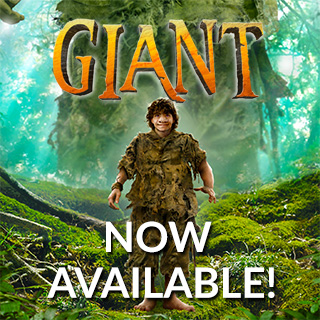Why Heroism Deserves Our Attention Today (and Always)

The concept of heroism has always fascinated me. The hero’s journey, whether through the enchanting realms of Avalon and Atlantis or the real-world paths traversed by inspiring young people, reveals the remarkable potential that lies within each of us.
But what does it really mean to be a hero, especially for young people who are just beginning to navigate the intricate trails of their own lives?
Understanding Heroism
When it comes to knowing the difference between a hero and a celebrity, our society is confused. Massively, profoundly confused.
Somewhere along the way, we have lost track of the key distinction between celebrity and heroism. In our media-obsessed culture, we spend far more time discussing the latest celebrity scandal than the crucial values and events that shape our society. But true heroism is about character, not fame and glory. This distinction is crucial — especially for young people.
For starters, a hero is not about fame. Or money. Or Grammy awards. A hero is about just one thing, and that’s character. That’s right — qualities such as courage, compassion, hope, perseverance, humility, and faith. Qualities with deep value and lasting importance.
My own heroes are people who sought no recognition and only wanted to make a positive difference in the world. My mother and father would top this list, as would my sister Winnie (who founded an orphanage in Africa for children with AIDS).
Gloria Barron, the woman I was lucky enough to know as my mother, never sought fame. She simply lived the life of a teacher who cared deeply about her children and her community. She was always learning: The day before she died, at age ninety-two, she delighted in learning a new word origin! And she never lost her childlike sense of wonder.
I also greatly admire Abraham Lincoln, Anne Frank, Gandhi, Eleanor Roosevelt, Martin Luther King, Albert Einstein, Wilma Rudolph, and Jane Goodall. Add to that list Ben Franklin, Helen Keller, Leonardo da Vinci, Beethoven, Stephen Hawking, Rachel Carson, John Muir, and the Dalai Lama. And let’s not forget that wonderful writer and wise woman, Madeleine L’Engle.
Why did I list Lincoln first? Besides my mother, he was my first hero — I couldn’t get over his courage, faith, humor, and humility. As well as his gracious spirit — which enabled him to urge a war-torn nation to remake itself “with malice toward none, with charity for all.”
True heroism is defined by character, the choices we make, and how we impact others. There are everyday heroes and traditional heroes, but the core qualities—courage, selflessness, perseverance—remain the same.
The Potential Within
Every young person is a force — a package of positive energy that could help the world in some way. They may not believe that. They may think it’s the craziest idea ever. But it’s true. Deeply true.
How do young people make that discovery? Not by lectures or sermons. No, the very best way is by sharing examples:stories about young people who faced difficult challenges and somehow triumphed. Nothing is more powerful than stories of heroic people, whether they are fiction (like the ones I’ve written about Merlin, Kate, and other characters) or nonfiction (as you’ll find in The Hero’s Trail).
All of us have an amazing power, the power to make choices. What we do with our time, what we care about, how we treat others … all these are choices we make daily. And every choice we make says something about who we are. In this way, our choices become our footsteps on the trail of life, and our footsteps become our journey.
Heroism in Stories
When I talk with kids from all walks of life, I’m struck by how many of them feel powerless in their own lives and in the world around them. This problem partly comes from America’s confusion between heroes and celebrities. A hero is about inner qualities of character, while a celebrity is just about fame.
Another part of the problem is our society’s focus on materialism. The mass media bombards our kids with negative messages, telling them their self-worth comes from what they wear, drink, or drive, instead of who they truly are inside.
I realized that these kids needed to hear stories about heroic young people. Not just fictional heroes, such as the girls and boys in my novels, but real young people who have faced terrible obstacles and triumphed through their own courage, perseverance, compassion, and wisdom.
These young heroes come in all descriptions — every gender, race, age, color, culture, or economic background. Some are well-known, such as Anne Frank or Wilma Rudolph or Stephen Hawking, but many more are largely unknown. So I packed my book, The Hero’s Trail, with dozens of examples of amazing young people, both historical and contemporary. The result, I hope, is that any young reader will gain a sense of his or her own heroic potential.
Why did I use the idea of walking on a trail? Because life is a journey through uncharted terrain. Often arduous, often wondrous, and full of surprises — life resembles the long hikes I’ve taken through the mountains of Colorado, Nepal, or Patagonia.
The older I get, with more creases on my hiking boots as well as my brow, the more potent this analogy seems. And in every journey, we need our guides — heroes who have walked this trail before, who show us how high we can climb.

